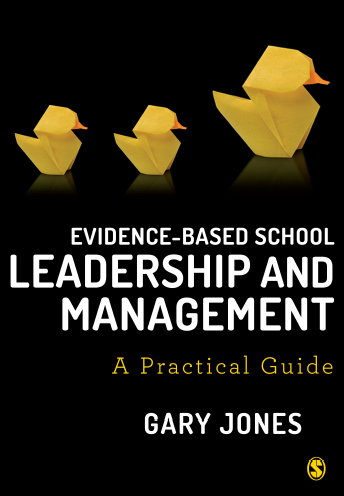As we approach the end of the academic year the educational
conference season appears to be in full-swing with attendees and delegates being faced with a ‘tsumami’ of expert opinion,
for example, last weekend saw ResearchED Rugby.
Indeed, over the next few weeks I will be making my own contribution to
that ‘tsumani’ by speaking at the Festival of Education, Wellington College, ResearchSEND
at the University of Wolverhampton and the Hampshire Collegiate school’s teaching and learning conference. This got me thinking about ‘expert opinion’
and under what circumstances should the opinions expressed by so-called expert
speakers at conferences be accepted. By speaking
at a conference I am asking colleagues – if not to accept my so-called ‘expert’ opinion - to spend some of their precious time thinking
about what I have to say. On the other
hand, I will also be listening to speakers at the conferences, so the question I
have to ask myself – particularly if I don’t know much about the speaker’s
subject or the speaker – under what circumstances should I accept their expert
opinion.
Accepting expert
opinion
Over recent weeks I have been exploring the role of research
evidence in practical reasoning and in doing so I have across the work of Hitchcock (2005) who cites the work of Ennis (1962)
pp. 196-197. Ennis has dentified seven
tests of expert opinion
1.6.1) The opinion in
question must belong to some subject matter in which there is expertise. An
opinion can belong to an area of expertise even if the expertise is not based
on formal education; there are experts on baseball and on stamps, for example.
1.6.2) The author of
the opinion must have the relevant expertise. It is important to be on guard
against the fallacy of ‘expert fixation’, accepting someone’s opinion because
that person is an expert, when the expertise is irrelevant to the opinion
expressed.
1.6.3) The author must
use the expertise in arriving at the opinion. The relevant data must have been
collected, interpreted, and processed using professional knowledge and skills.
1.6.4) The author must exercise care in applying the expertise and in formulating the expert opinion.
1.6.5) The author
ideally should not have a conflict of interest that could influence,
consciously or unconsciously, the formulated opinion. For example, the
acceptance of gifts from the sales representative of a pharmaceutical company
can make a physician’s prescription of that company’s drug more suspect.
1.6.6) The opinion
should not conflict with the opinion of other qualified experts. If experts
disagree, further probing is required.
1.6.7) The opinion should not conflict with other justified information. If an expert opinion does not fit with what the reasoner otherwise knows, one should scrutinize its credentials carefully and perhaps get a second opinion.
Accepting expert
opinion at conferences
So what are the implications for Ennis’s seven tests of
expert opinion for both the giving or receiving expert opinion. Well if you are an attendee at a conferences and
listening to so-called experts, it seems to me that you should be asking the
following questions.
- Is the speaker talking about a subject they have ‘expertise in’, or are they speaking because they are deemed to be an ‘expert of some kind’? You may also to make the distinction between experience and expertise, as the two should not be conflated. In other words, just because someone has experience in doing something does not automatically make them an expert in that subject
- Does the speaker make it clear that there are limitations with what they are proposing or putting forward If they don’t, then that’s a real ‘red-flag’ as very little in education is not without limitations or weaknesses.
- In all likelihood there are likely to be an alternative perspective on the speakers’ topic, so what they say will not be the last word on the matter. You’ll certainly have to do some further reading or investigation before bringing it back to your school as a solid proposal. Does the presenter makes suggestions where to look?
- What are the speakers ‘interests’ in putting forward this point of view, be it, reputational, financial or professional?
- Just because an expert’s view disagrees with you own experience, that does not invalidate your experience – it just means you need to get a second or third opinion.
- Does the speaker present a clear argument – do they lay out clearly the components of an argument; be it the data, claim, warrant and supporting evidence.
- Is the speaker more concerned with ‘entertaining’ you with flashy slides rather than helping you think these the relevant issues for yourself.
What does Ennis’s 7
conditions mean for ‘experts’ making presentations?
- Presenters need to be humble and acknowledge the limits of their expertise and be aware of projecting ‘false-certainty’ in the strength of their arguments
- Make sure their slides or whatever format they have used for their presentation specifically mentions the limitations of the presenter’s argument.
- Include a list of references backing the counter-arguments laid out in 2 above.
- Declare any ‘conflicts of interests’ that they may have which might influence their presentation
- Think long and hard about getting the balance right between providing and ‘education’ and being ‘entertaining.’
And finally
Attendance at a conference is often a great day-out away
from the hassle of a normal working day.
Ironically, if a conference does not lead to substantive additional
work-load in terms of additional reading and inquiry, then attendance at the
conference will have been an entertaining and nice day-out but that’s all it
will have been.
PS
If you see and hear and me speak at a conference and I don't live up to these principles - please let me know
